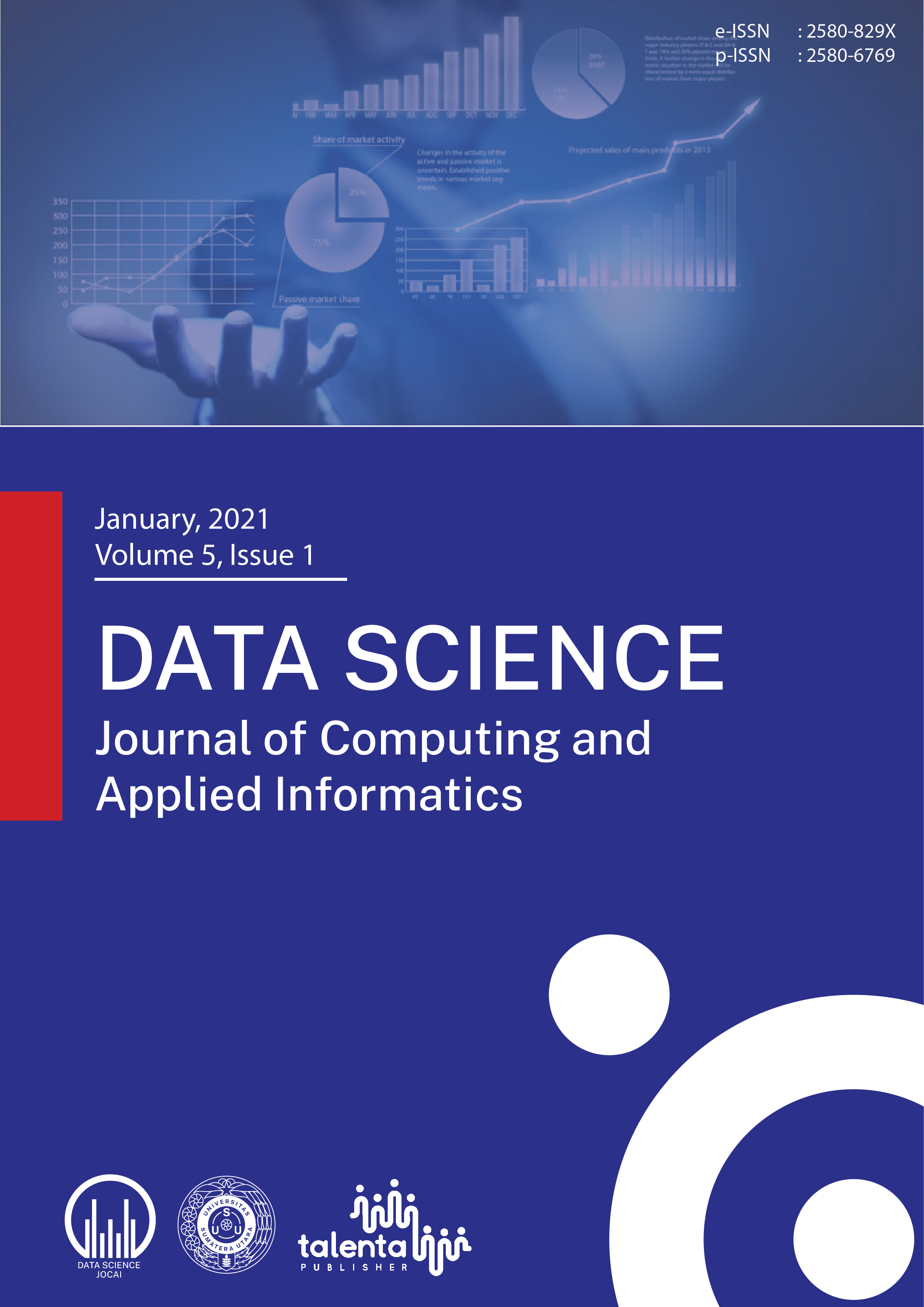Expertise Locator For Lecturers Based on Publication
DOI:
https://doi.org/10.32734/jocai.v5.i1-5112Keywords:
Expertise Locator, Knowledge, Lecturer, PublicationAbstract
Among the KM processes that function to guarantee access to knowledge is knowledge sharing. This process allows knowledge assets and experiences possessed by the organization to be accessed by anyone in the organization. Especially by using IT, this process can be done more optimally by capturing existing knowledge into a system so that this valuable information can be monitored anytime and anywhere. There are times when the knowledge possessed by experts is difficult to capture and represent in the system as in the case of tacit knowledgesuch as instincts, insights, and experiences of the experts. One of the challenges in inventorying these experts is the process of creating expert profiles automatically based on a particular approach. This research create an Expert Locator for lecturers who are considered as experts in their field of research using publication data produced by these lecturers as an indication of their expertise. The search feature is made as an implementation of the extraction results that can be used by other parties to find experts by entering keywords in the form of the desired expertise.
Downloads
References
Y. Zheng, L. A. Naylor, S. Waldron, and D. M. Oliver, “Knowledge management across the environment-policy interface in China: What knowledge is exchanged, why, and how is this undertaken?,†Environ. Sci. Policy, vol. 92, pp. 66–75, 2019.
E. Honoré-Livermore, “CubeSats in University: Using Systems Engineering Tools to Improve Reviews and Knowledge Management,†Procedia Comput. Sci., vol. 153, pp. 63–70, 2019.
L. Ardito, A. Ferraris, A. M. Petruzzelli, S. Bresciani, and M. Del Giudice, “The role of universities in the knowledge management of smart city projects,†Technol. Forecast. Soc. Change, vol. 142, pp. 312–321, 2019.
O. R. Mahdi, I. A. Nassar, and M. K. Almsafir, “Knowledge management processes and sustainable competitive advantage: An empirical examination in private universities,†J. Bus. Res., vol. 94, pp. 320–334, 2019.
E. E. Tripoliti et al., “HEARTEN KMS--A knowledge management system targeting the management of patients with heart failure,†J. Biomed. Inform., vol. 94, p. 103203, 2019.
S. Nasiri, G. Zahedi, S. Kuntz, and M. Fathi, “Knowledge representation and management based on an ontological CBR system for dementia caregiving,†Neurocomputing, vol. 350, pp. 181–194, 2019.
D. Gu, S. Deng, Q. Zheng, C. Liang, and J. Wu, “Impacts of case-based health knowledge system in hospital management: The mediating role of group effectiveness,†Inf. Manag., vol. 56, no. 8, p. 103162, 2019.
I. Becerra-Fernandez and R. Sabherwal, Knowledge management: Systems and processes. Routledge, 2014.
G. Beham, B. Kump, T. Ley, and S. Lindstaedt, “Recommending knowledgeable people in a work-integrated learning system,†Procedia Comput. Sci., vol. 1, no. 2, pp. 2783–2792, 2010.
M. S. Ackerman, J. Dachtera, V. Pipek, and V. Wulf, “Sharing knowledge and expertise: The CSCW view of knowledge management,†Comput. Support. Coop. Work, vol. 22, no. 4–6, pp. 531–573, 2013.
M. Gujral and S. Chandra, “Beyond recommenders and expert finders, processing the expert knowledge,†Int. J. Comput. Sci. Issues, vol. 11, no. 1, p. 151, 2014.
D. Attiaoui, A. Martin, and B. Ben Yaghlane, “Belief measure of expertise for experts detection in question answering communities: Case study stack overflow,†Procedia Comput. Sci., vol. 112, pp. 622–631, 2017.
D. Kozjek, E. Öztürk, L. T. Tunç, A. Malus, P. Butala, and others, “Identification of the CIRP expertise network based on public data,†Procedia CIRP, vol. 72, pp. 165–168, 2018.
J. Hu, S. Li, Y. Yao, L. Yu, G. Yang, and J. Hu, “Patent keyword extraction algorithm based on distributed representation for patent classification,†Entropy, vol. 20, no. 2, p. 104, 2018.
M. G. Thushara, T. Mownika, and R. Mangamuru, “A Comparative Study on different Keyword Extraction Algorithms,†in 2019 3rd International Conference on Computing Methodologies and Communication (ICCMC), 2019, pp. 969–973.
M. G. Thushara, M. S. Krishnapriya, and S. S. Nair, “A model for auto-tagging of research papers based on keyphrase extraction methods,†in 2017 International conference on advances in computing, communications and informatics (ICACCI), 2017, pp. 1695–1700.
Downloads
Published
How to Cite
Issue
Section
License
Copyright (c) 2021 Data Science: Journal of Computing and Applied Informatics

This work is licensed under a Creative Commons Attribution-ShareAlike 4.0 International License.















